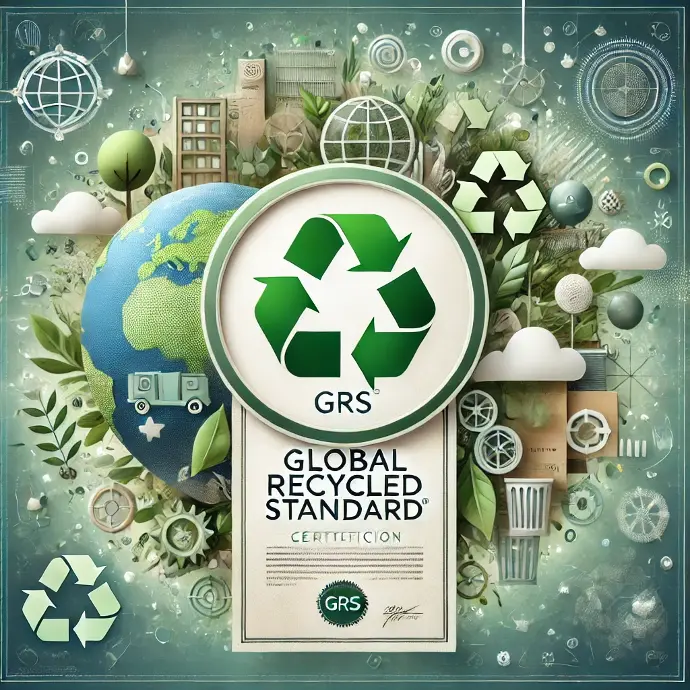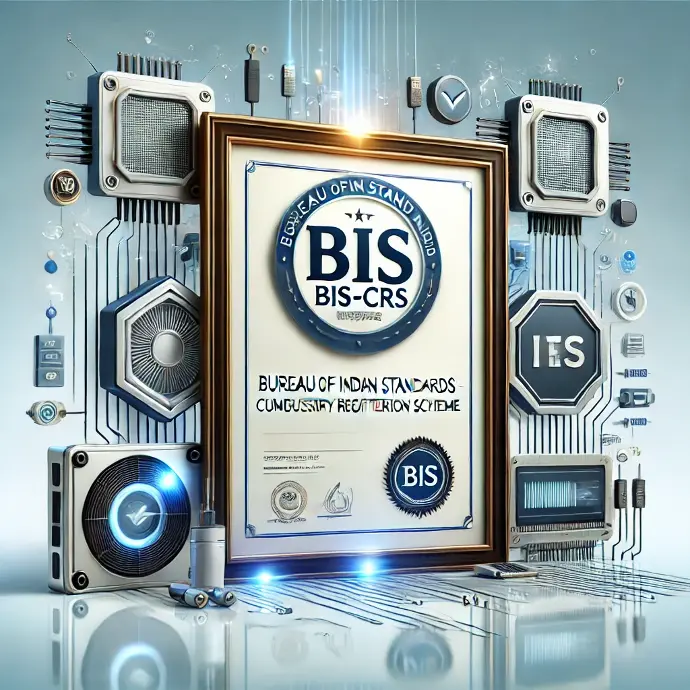Services

BIS Mark Certification
When purchasing products such as electrical appliances, electronics, machinery, food items, or construction materials, individuals often harbor concerns regarding their quality and safety, regardless of the brand. To address these apprehensions, the Bureau of Indian Standards (BIS) plays a pivotal role. ISI certification, offered by BIS, serves as a benchmark for quality and safety assurance.
BIS ensures that products meet stringent quality standards by granting ISI certification, which is imperative for over 370 products mandated for sale in the Indian market. Even for products not under mandatory certification, manufacturers can opt for BIS/ISI certification through the same rigorous process. This certification not only signifies adherence to quality benchmarks but also fosters consumer trust in the product’s reliability and safety.
FMCS Certification
The Foreign Manufacturers Certification Scheme (FMCS) implemented by the Bureau of Indian Standards since 2000, falls under Scheme-I of Schedule-II. This scheme enables foreign manufacturers to obtain the prestigious ISI Mark, allowing them to market their products in India. Overseas manufacturers producing certain listed products can receive ISI certification, affirming compliance with Indian standards.
The ISI Certificate, issued by the Foreign Manufacturers Certification Department (FMCD) located at the Bureau of Indian Standards Head Office in New Delhi, grants authorization for the use of the Standard Mark on products meeting Indian Standard specifications. To qualify for the BIS Certificate, products must adhere to relevant Indian Standard requirements.
Additionally, foreign applicants must appoint an Authorized Indian Representative (AIR), who must be a resident of India, as part of the certification process. This ensures effective communication and representation within the Indian market.


Hallmarking
Hallmarking of gold jewellery and artefacts is mandatory in India. It is an important step towards the implementation of gold purity standardisation. The Ministry of Consumer Affairs has decided on the compulsory hallmarking of gold based on the Consumer Protection Act 1986.
The Bureau of Indian Standards (BIS) introduced Gold Hallmarking Scheme in 2000 and Silver Hallmarking Scheme in 2005. Since 1 April 2023, the government has made 6-digit hallmarking with Hallmark Unique Identification Number (HUID) mandatory for selling or buying gold.
FSSAI License
FSSAI License and Registration is required for any food business in India that manufactures, stores, transports, or distributes food. Depending on the size and nature of the company, FSSAI registration or license may be required. In the FSSAI Registration process, the FBO will get a 14 digit number that needs to be printed on food packages. Obtaining a FSSAI license can provide the food business with legal benefits, build goodwill, ensure food safety, create consumer awareness, and assist in business expansion. IndiaFilings can help you obtain an FSSAI license throughout the country very quickly. We also help to get FSSAI registration. Our experts will guide you in selecting the proper food category and license.


GRS
The Global Recycled Standard (GRS) is a voluntary product standard for tracking and verifying the content of recycled materials in a final product. The standard applies to the full supply chain and addresses traceability, environmental principles, social requirements, chemical content and labeling. GRS covers processing, manufacturing, packaging, labeling, trading and distribution of all products made with a minimum of 20% recycled material. It also sets requirements for third-party certification of recycled content, chain of custody, social and environmental practices, and chemical restrictions.
The standard supports companies looking to verify the recycled content of their products as well as responsible social, environmental and chemical practices in the production of these products. Although the GRS is owned by Textile Exchange, the range of products is not limited to textiles and can include any type of product containing recycled content materials.
The desired effect of GRS is to provide brands with a tool for more accurate labeling, to encourage innovation in the use of reclaimed materials, to establish more transparency in the supply chain, and to provide better information to consumers.
The goal of GRS is to increase use of Recycled materials in products and reduce or eliminate the harm caused by its production.
BIS-CRS
The Bureau of Indian Standards (BIS) is the primary agency entrusted with the task of setting national standards across various industries in India. Its mandate includes the creation, maintenance, and enforcement of quality standards for a wide range of goods, services, and systems. BIS Registration is a mandatory requirement for numerous products in India, spanning industries such as information technology, electronics, food products, construction materials, automobiles, and more.
The objective of the BIS Registration system is to ensure that products available in the Indian market adhere to stringent quality and safety standards. Achieving BIS Registration entails rigorous testing and certification procedures, with manufacturers and importers obligated to comply with all relevant regulations and standards. This regulatory framework not only safeguards the rights of consumers but also fosters the growth of Indian industries.
Under the Compulsory Registration System (CRS), certain goods must undergo approval from the Bureau of Indian Standards before they can be introduced into the Indian market. For electronic and information technology products, compliance with the BIS Registration program, also known as the “Compulsory registration scheme,” is mandatory. The scheme encompasses 63 electronic and information technology items notified by the Ministry of Electronics and Information Technology, along with 8 products notified by the Ministry of Health and Family Welfare, and 5 products by the Ministry of Rural Empowerment. This stringent registration process ensures that products meet established standards, enhancing consumer confidence and safety
